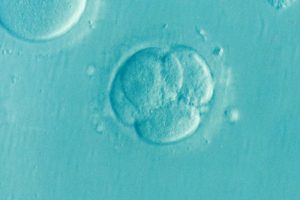
The Two Week Wait (TWW)
The luteal phase, or better known to women trying to conceive as the two week wait (TWW), is the period of time after ovulation before menstruation unless a woman becomes pregnant. The most frequently asked question during this time is “Are those pregnancy symptoms I’m having, or is that my period getting ready to start?”
During the two week wait, your basal body temperature will begin to rise in order to aid increased production of progesterone. The increased level of progesterone will thicken your uterine lining and sustain implantation of the fertilized egg. If the egg has not implanted within 10 to 16 days of ovulation, the egg will disintegrate and be shed along with your uterine lining during menstruation.
Early pregnancy symptoms and typical luteal phase symptoms are often quite similar, due to the effects of increased progesterone levels. However, many women who become pregnant do experience a sustained increase in their basal body temperature (typically around 98°F/36.6°C).

Common symptoms during the luteal phase:
- Constipation
- Bloating
- Water retention
- Reflux
- Mood swings
- Fatigue
- Headaches or migraines
- Breast tenderness
- Spotting
Possible (very) early pregnancy symptoms:
- Sustained increase in basal body temperature (98°F/36.6°C)
- Increased urination
- Increased nipple sensitivity
- Food cravings
- Insomnia or vivid dreams
- Implantation bleeding
- All symptoms mentioned above for the luteal phase
As you can see, it can be difficult to differentiate between your regular luteal phase and pregnancy symptoms. There are also many women who do not experience any physical symptoms at all during this period of their pregnancy.
Therefore, it really is best to try and put the two week wait out of your mind as much as possible, eat and exercise as though you were already pregnant, and take a pregnancy test once you have missed your period.
Understanding Your Monthly Cycle
Cycle Tracking
› The Two Week Wait
Understanding Your Monthly Cycle
Cycle Tracking
› The Two Week Wait
Browse all Articles:
Trying to Conceive
Pregnancy
Motherhood
Self Care
SingleMomsByChoice.org is run by single moms by choice for single moms by choice, dedicated to helping educate, enlighten and empower women who are thinking about or who have decided to have a child “on their own” through donor insemination, egg or embryo donation, adoption or other assisted means.


